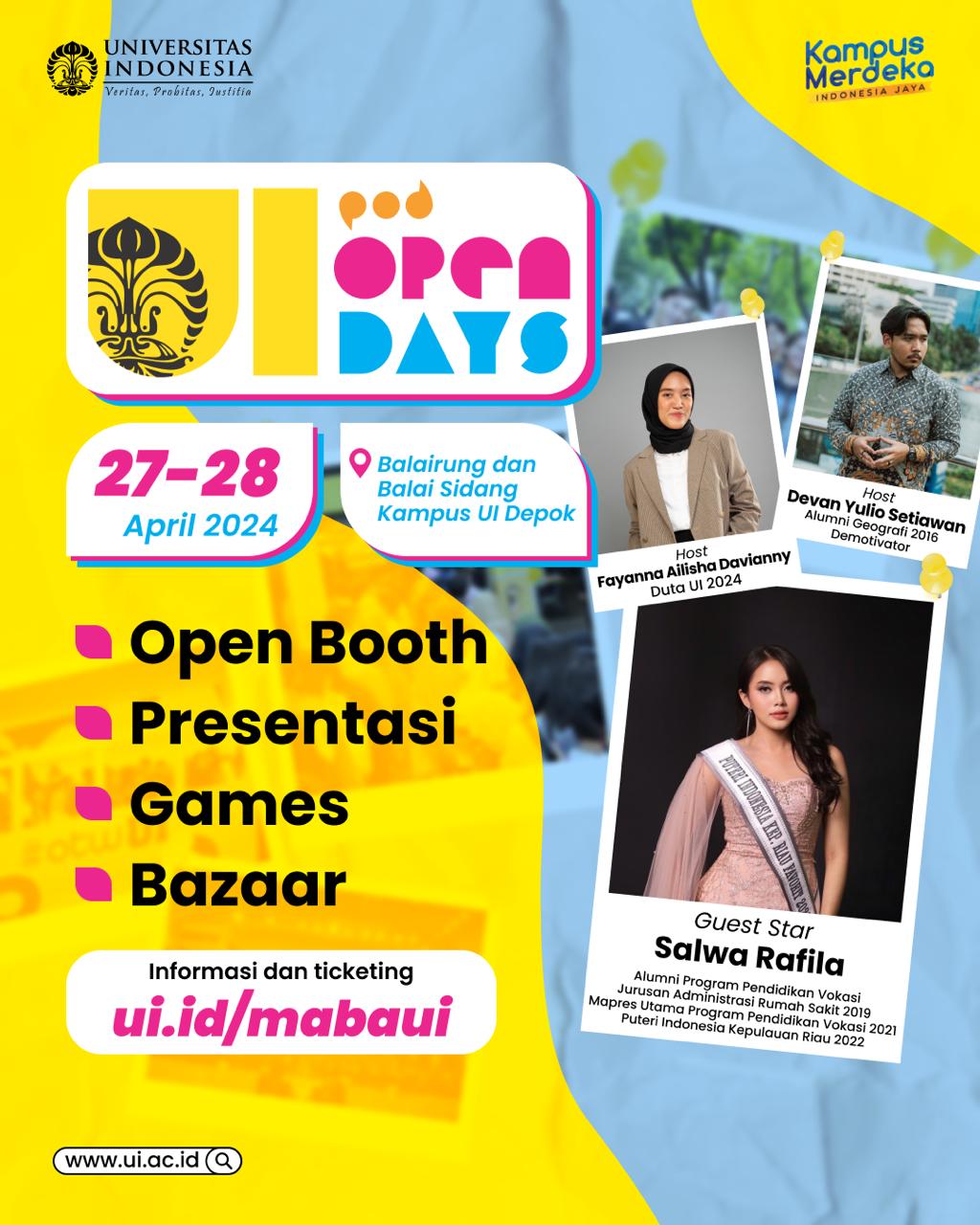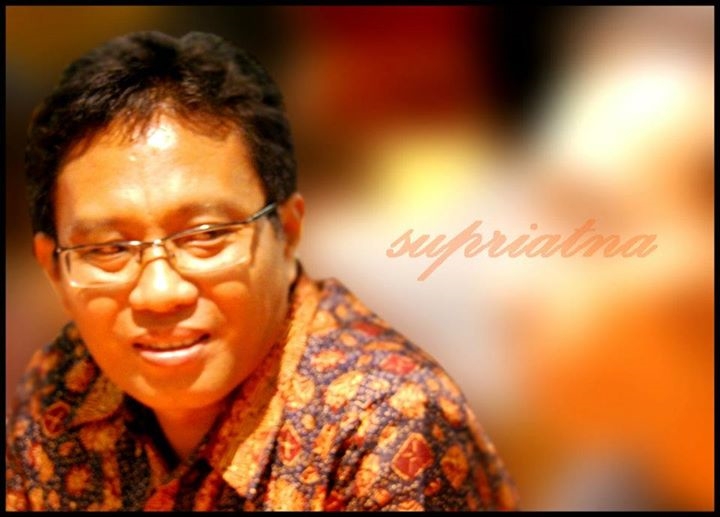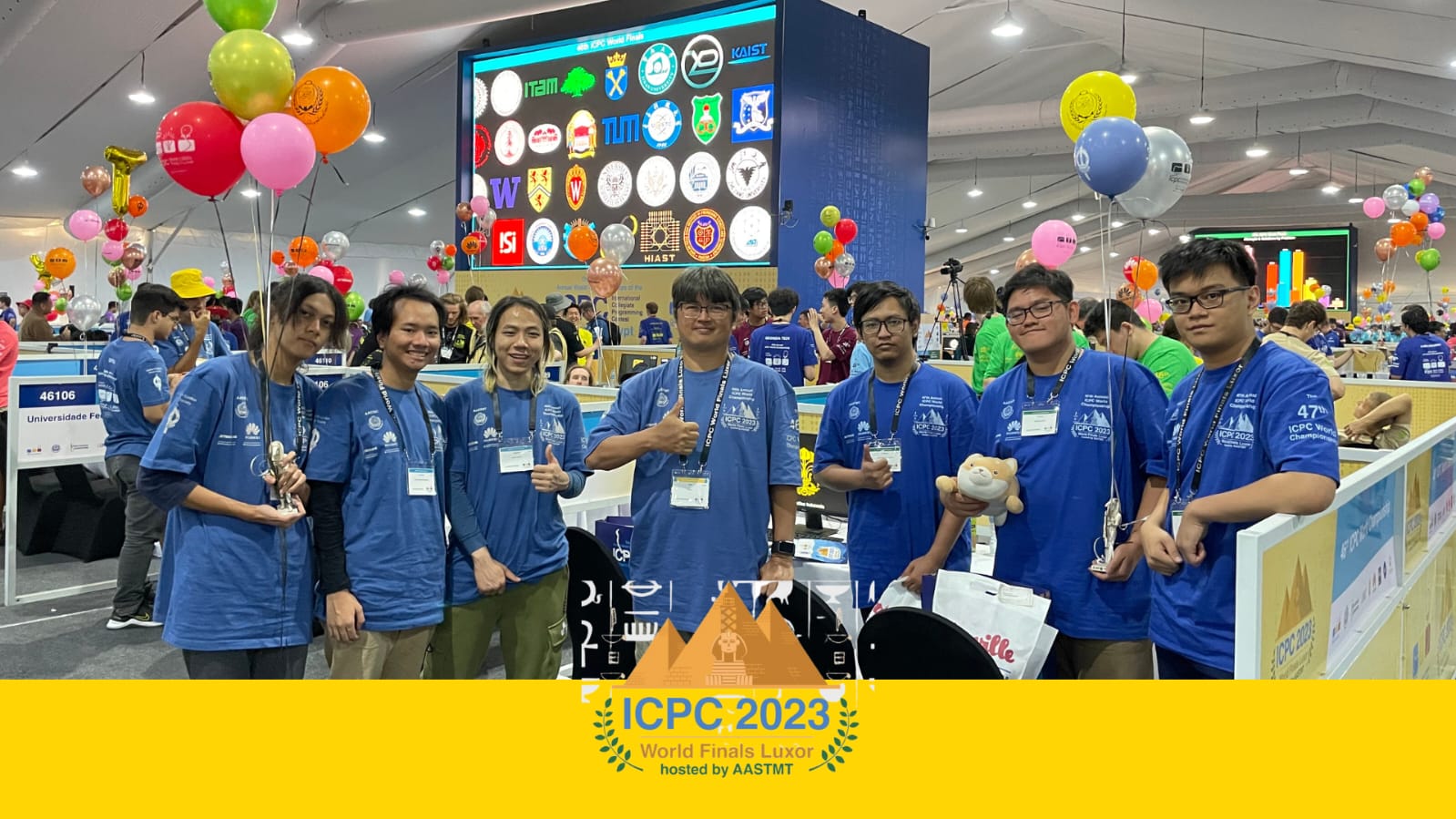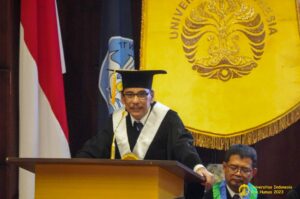
There are various definitions of culture, which are based on the academic discipline related to it and the views of experts. However, Maman Lesmana, in his professorial inaugural speech, Wednesday (15/03), at Balai Sidang Universitas Indonesia (UI), Depok Campus, tried to define the term “budaya” (culture) more simply. This is because the various definitions of culture lead to confusion in various aspects, such as in the learning curriculum, the classification of academic disciplines, and the suitability of academic degree titles with the expertise of graduates.
The title of Bachelor of Humanities (S.Hum.) or Master of Humanities (M.Hum.), for example, does not fit properly to graduates from the Faculty of Humanities because they are actually not cultural experts, but only experts from one element of cultural science, such as literature, language, history, and so on. Therefore, graduates from the Department of History are more appropriately referred to as Bachelors of History instead of Bachelors or Masters of Humanities.
The confusion in defining the term “budaya” (culture) causes confusion in determining who is called “cultural practitioners”. Are cultural practitioners specialists in culture, like sociologists specializing in sociology or anthropologists specializing in anthropology? Who deserves that name and who has the right to pin that name on others? Is it the institution, the community, the media, or the seminar committee? This question arises because there are no specific criteria for calling someone a cultural practitioner.
According to Maman, there are lecturers and colleagues on campus who are really experts in cultural studies, both from a theoretical and practical perspective, but no one calls them “cultural practitioners”. On the other hand, there are people who have only written some fiction and literary essays, appeared in several plays, and are active in certain cultural center activities, yet they are already referred to as “cultural practitioners”.
This confusion finally triggered Maman to look for an alternative definition that is more suitable and easy to understand. The etymology of the term “budaya” (culture) comes from the word “budi” (mind) and “daya” (effort), which are used as an alternative for a simple definition of the term. “When I was little, I once heard that the term “budaya“, etymologically, comes from a combination of two words, namely budi and daya. I don’t know where it came from, but I believe that it is true and can be used as an alternative to understanding the definition of culture,” said Maman.
Maman found a semiotic element (sign) in the two words. The word “budi” that precedes the word “daya” shows the greater position of the word “budi” to the word “daya”. It is known that the word ‘budi‘ spiritually correlates with morals. Thus, this is in accordance with the teachings in Islam, namely laa hawla wa laa quwwata illa billahi (there is no power and effort, except with the help of Allah). This sentence shows that the religious element is more important than the power element.
According to Prof. Koentjaraningrat, the word “religi” (religion) contained in seven elements of culture is the mind (budi) in this context. As for other elements, such as language, knowledge, social organization, tools of life and technology, economy or livelihood, and the arts are the efforts (daya). The word “budi” is often interpreted as reason, thought, and idea. Humans have the same mind and with that, people have the same character or act well. Good character is morality that contains meaning, i.e. customs, manners, and behavior that helps people to live well.
By using this definition of culture, the meaning of cultural practitioners is obtained, which is people who are cultured or people who prioritize morality over efforts, because with good aspects of mind, aspects of efforts will also be good. “So, if we want to be called cultural practitioners, we must prioritize the mind first, which in my religion is called akhlaq al-karimah, and then the efforts, which are the mastery of one, several, or all cultural elements, academically and non-academically,” said Maman.
The definition of culture understood by Maman is actually the same as the view presented by Koentjaraningrat. However, in Koentjaraningrat’s view, it was not stated which element was more important. It is like the views of sociologists who divide culture into material and non-material and the views of anthropologists who argue that there are values that are used to preserve social groups. The point is that all definitions of culture can be dichotomized into budi-daya, religion-non religion, material-non material, and values/rules/ideas-the social groups that use them.
This scientific oration with the theme “Understanding Culture in a Simple way” was delivered by Prof. Dr. Maman Lesmana, S.S., M.Hum. on the occassion of his inauguration as a Tenured Professor in the Faculty of Humanities (FIB) UI. The inauguration procession led by UI Rector Prof. Ari Kuncoro, S.E., M.A., Ph.D., was also attended by the 2014 UI Rector Prof. Dr. Bambang Wibawarta, S.S., M.A., and Secretary of the Board of Trustees UI Dra. Corina D.S. Riantoputra, M.Com., Ph.D.
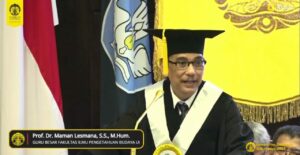
Prof. Maman graduated from the undergraduate program in Linguistics (1986) and master’s program in Literature (1999) at UI. He earned his Doctoral degree in 2008 from Universitas Islam Negeri Syarif Hidayatullah in the field of Arabic Language and Literature. He is a lecturer at the Department of Area Studies and Arabic Studies Program of FIB UI. He is also a Member of the Academic Senate Council of FIB UI for the 2022–2023 period, Chair of the Department of Area Studies FIB UI for the 2016–2018 period, Chair of the Arabic Studies Program FIB UI for the 2004–2008 period, and Coordinator of the Associate Degree Diploma Program of Arabic FIB UI for the 2000–2004 period.
Several of his scientific works have been published, including A Critical Reading of Arabic Internet Memes against Patriarchal Systems (2021), Humor and Language Error Arabic-English Informative Discourse (2021), Variations of Arabic Language in Indonesia (2019), The Activities of Arabic Women in the Field of Literature (2019), and Understanding the Characteristics of Indonesian Humorous Riddles (2019). Two of his books published in 2022 which are “Analyzing Humor” and “Arabic Humanities” have now been translated into several languages (Spanish, Italian, German, Russian, Portuguese, French) and are marketed in European countries.
Author: Sasa
See more:

